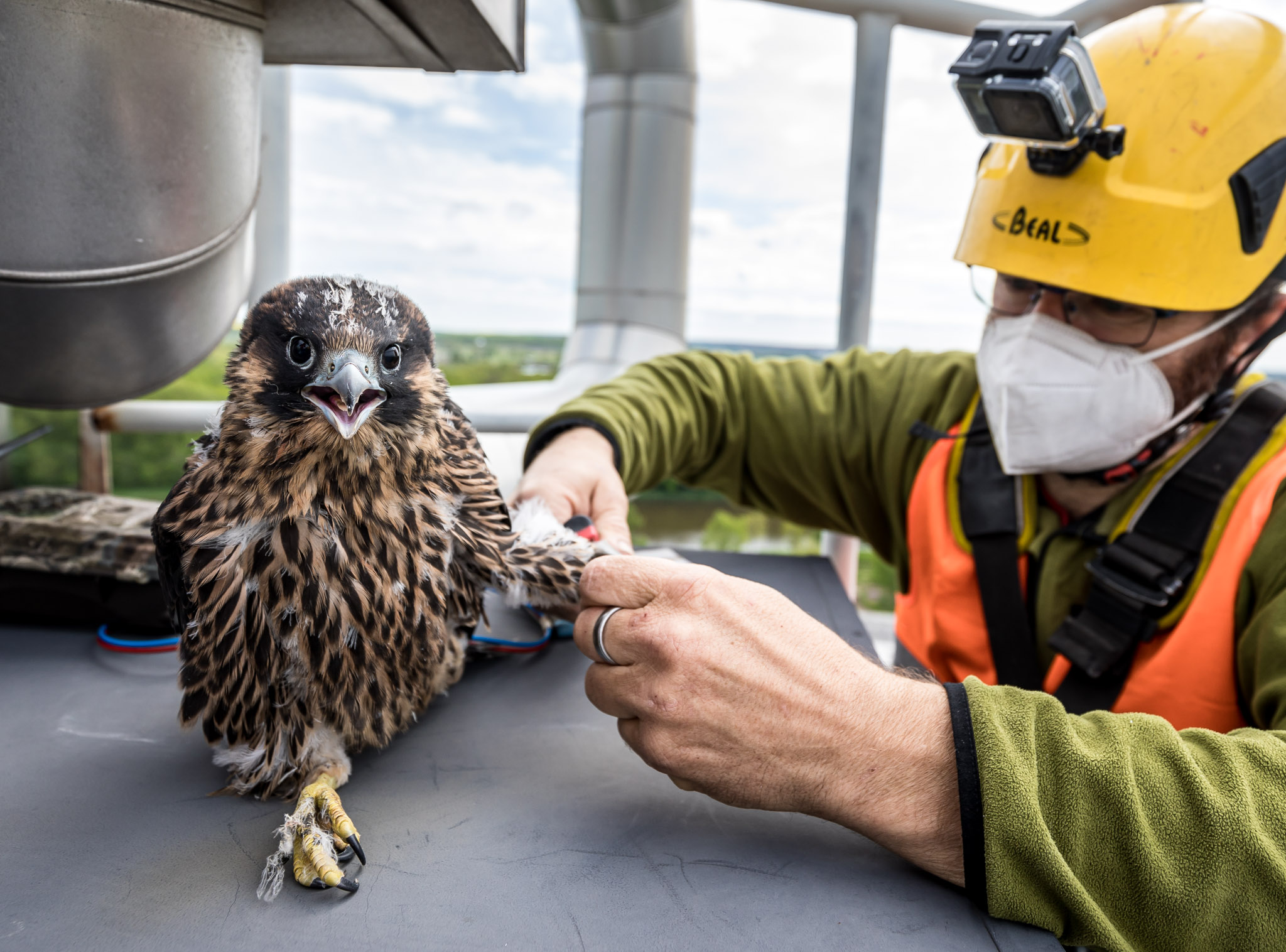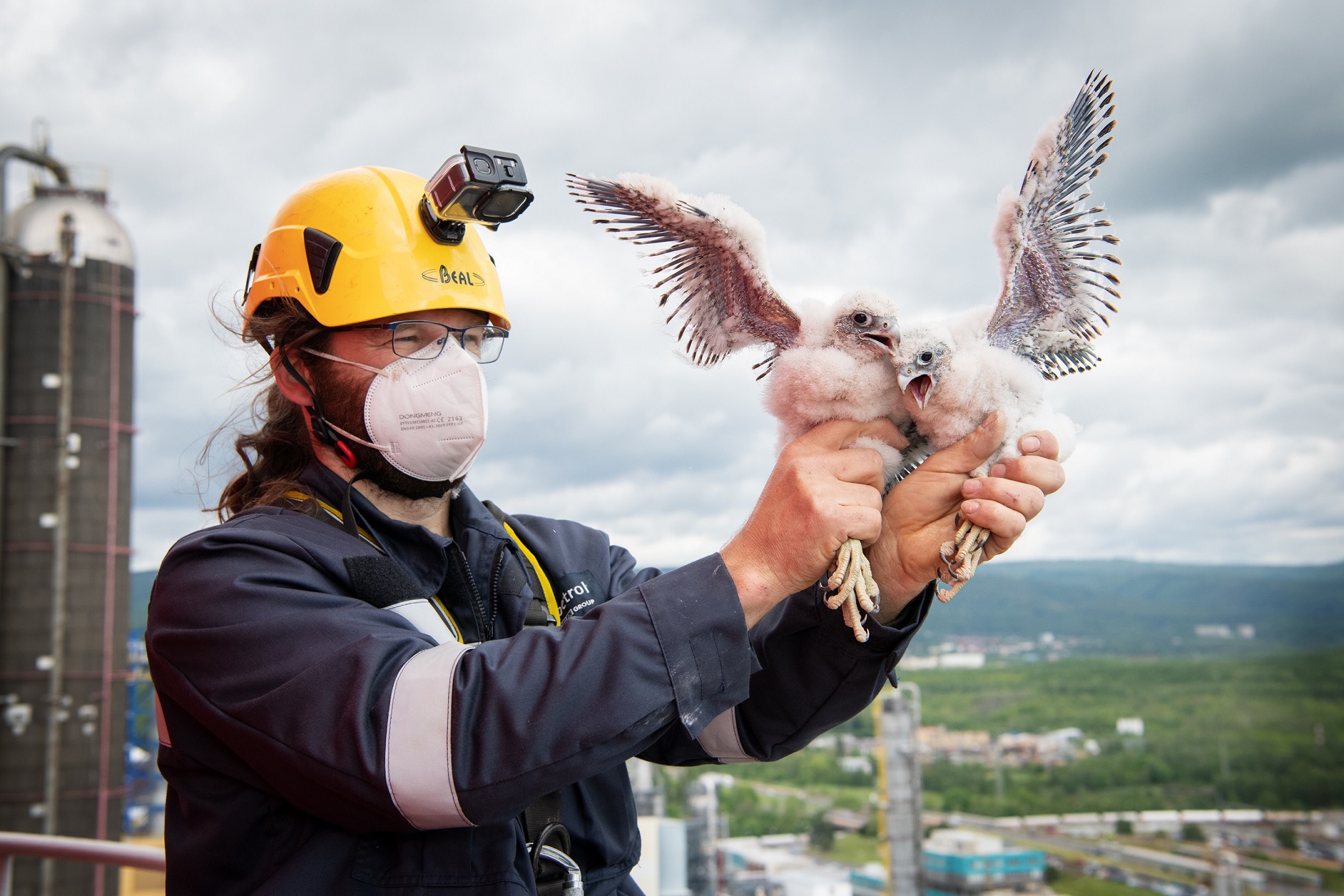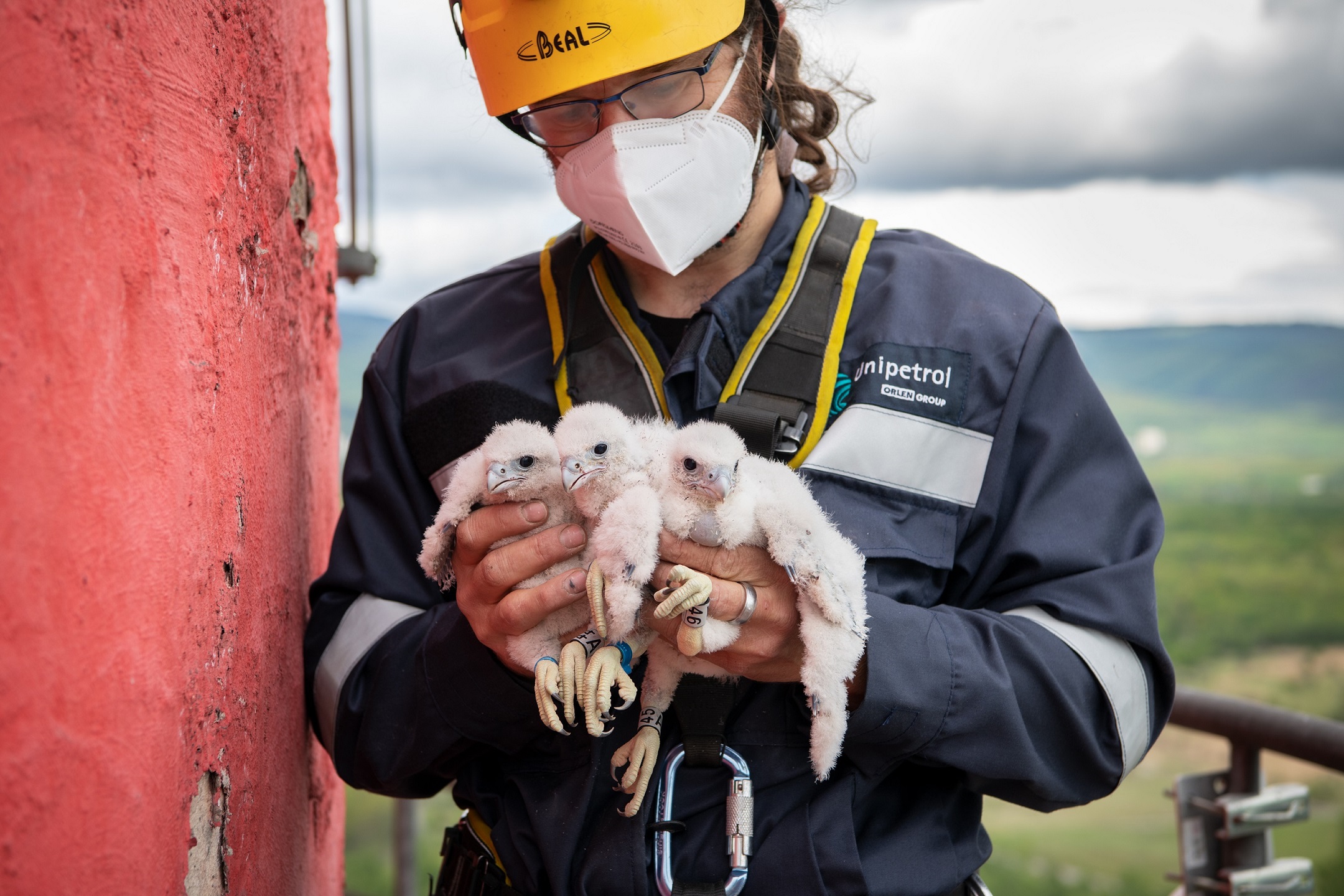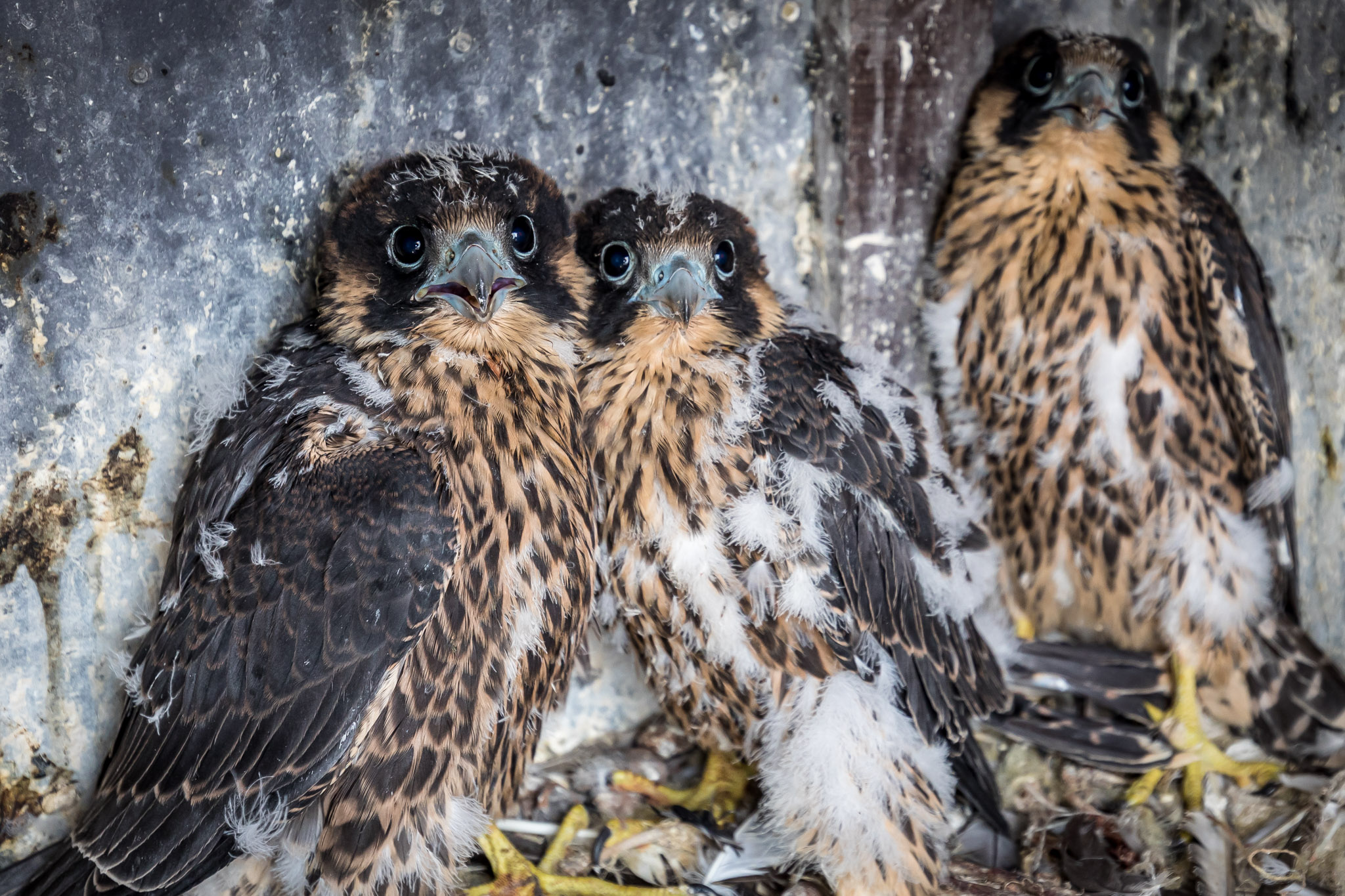“We at ORLEN Unipetrol
have been long seeking to minimise the impact of our operations on the
environment and encourage its protection. We want to be emissions-neutral by 2050.
Last year alone, the costs of greening projects totalled CZK 2 billion. They
also include the projects supporting the environment, such as the peregrine
falcon nesting, stocking the rivers Bílina and Elbe with fish, and beekeeping,”
sums up Katarzyna
Woś, Vice-Chair of the Board of Directors of the ORLEN Unipetrol Group. She adds: “We have been caring for the rare raptors at ORLEN Unipetrol for 11 years. This year was
the biggest success in terms of the new chicks born. Over the years, we have
seen 40 chicks, which significantly contributes to increasing the critically
endangered population of peregrine falcons. It was also our achievement that
the number of peregrines living in the wild in the Czech Republic has grown
from 80 to 110 pairs in recent years. Although it is amazing progress, the
number of peregrines remains low, which is why we will continue our efforts.”
Incognito nesting
The Chempark production site in Záluží near Litvínov could boast five
peregrine chicks this year. Two pairs resided on the local chimneys, which
makes the chemical plant a unique location on the ornithologic map of the Czech
Republic because peregrines do not usually nest so close to each other. Two
females and one male were born on the T700 plant’s chimney. In a Facebook
competition, they were named Mia, Žofinka, and Falco. They could be watched
online at www.starameseosokoly.cz. The peregrines nesting in the other part of the Litvínov site –
the steam cracker – had long been wrapped in mystery. Their chicks were born as
the last in the entire Group. Their parents also planned three babies here
because ornithologists had found a third, unfertilised egg in the nest, yet the
nature arranged it differently. The young left home to acquire experience in
July, and they are expected to nest in about three years.
The girls are big
travellers
The Kralupy Refinery saw new additions after a one-year break. “Although
the female laid three eggs in March, we saw only two chicks in the box in the
end – one girl and one boy. They were in excellent condition, and they received
two rings each: one ornithologic ring and a second one, which can be read
remotely with binoculars or a photo trap,” describes ornithologist Václav Beran of ALKA Wildlife. The
rings are helpful to monitor their future life, where they move, with whom they
nest, if they are faithful, and other juicy details from their life. While
males mostly move around their native heath, females are big travellers and fly
out to explore distant landscapes. Thus, Czech peregrines could be observed in
Germany and even in France.
Leasehold is not for
everyone
The peregrines in Spolana Neratovice have “pulled the employees’ leg”
this year. First, they settled in a box on a column in the other part of the
premises, i.e., outside the online camera’s finder. They pushed out the
original tenants – kestrels. Therefore, it was impossible to find out how many
chicks had been born. “The female was flying up with a caught pigeon before
we started climbing up the column. In the end, she sat on the opposite cooling
tower, observing us. In the meantime,
we found three peregrine teenagers in the box. So, we ringed them amid their
loud squeaking. They were almost feathered but calm, so everything went on as
planned,” comments Václav Beran. Pigeons occupied the
original box in the end. Yet, they did not remain long because peregrine
falcons are territorial birds, which is why they came to restore respect once
the young were born.
The ORLEN Unipetrol Group is the largest
refinery and petrochemical company in the Czech Republic. It focuses on crude
oil processing and the production, distribution and sale of vehicle fuels and
petrochemical products – particularly plastics and fertilisers. In all these
areas, it belongs among the critical players in the Czech and Central European
markets. The ORLEN Unipetrol Group encompasses refineries and production plants
in Litvínov and Kralupy nad Vltavou, Paramo, with its Mogul brand in Pardubice,
Spolana Neratovice, and two research centres in Litvínov and Brno. ORLEN Unipetrol
also includes a network of Benzina ORLEN filling stations in the Czech Republic
and Slovakia. With 420 filling stations, Benzina ORLEN is the largest chain in
the Czech Republic. Since its entry in 2019 to Slovakia, Benzina ORLEN has been
one of the fastest-growing chains and currently has 20 stations in its network.
ORLEN Unipetrol employs more than 4,800 people. In 2005, ORLEN Unipetrol became
a member of the ORLEN Group, the largest crude oil processor in Central Europe.
In addition to its business development, ORLEN Unipetrol is proud to be a
socially responsible corporation. Therefore, it pays an equal amount of
attention to initiatives, focusing on the cultivation and support of
sustainable development, education, local communities, and the environment.
Contact: Pavel Kaidl, spokesman,
telephone: +420 736 502 520, e-mail: pavel.kaidl@unipetrol.cz



